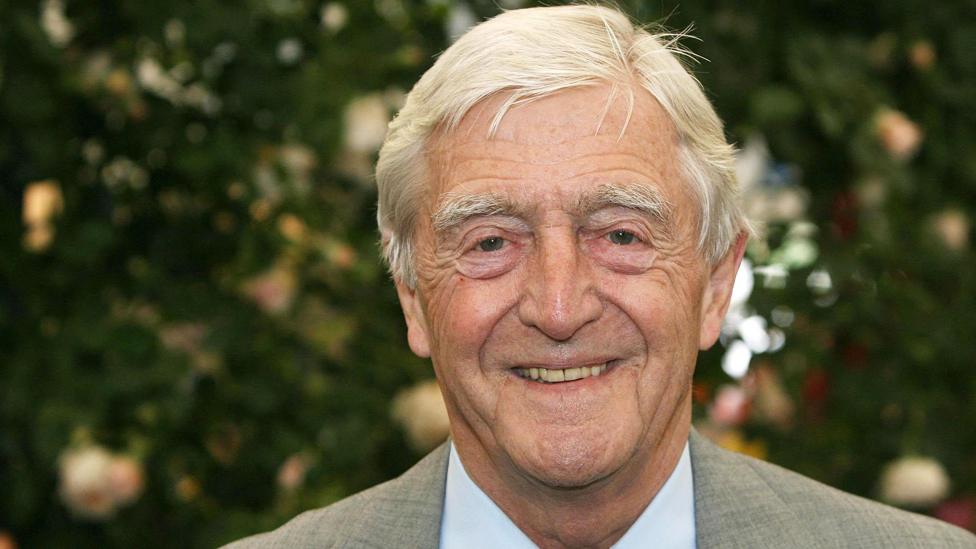Sir Michael Parkinson had 'imposter syndrome', son says
- Published
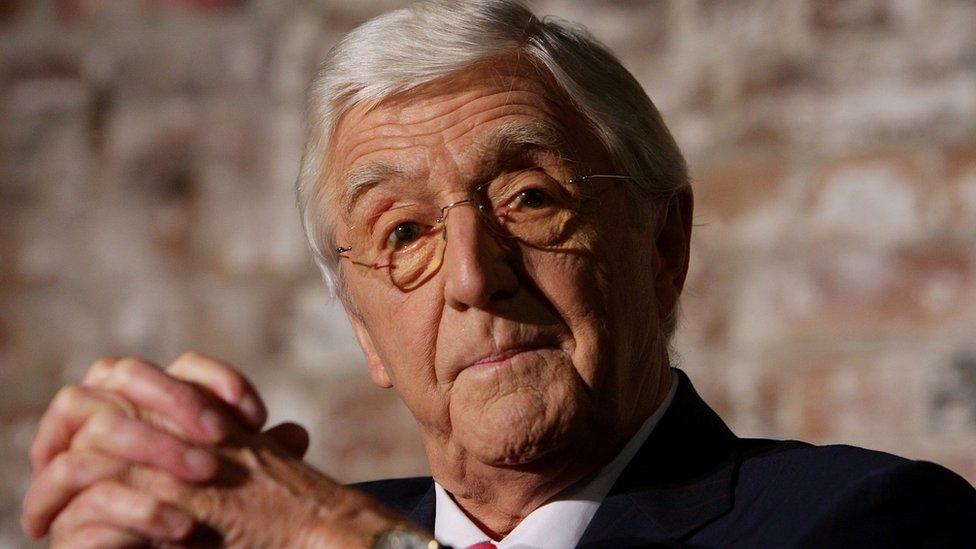
Sir Michael Parkinson's son has said star broadcaster suffered from "imposter syndrome" and "was wracked with self-doubt".
Mike Parkinson told BBC Radio 4's Last Word that his famous father "didn't have as much self-confidence as he appeared to have on TV".
Sir Michael died earlier this month at the age of 88.
He was known for interviews on his self-titled chat show with the likes of Muhammad Ali and Dame Helen Mirren.
Parkinson grew up on a council estate near Barnsley and his son told the BBC programme that his father was "still very class-ridden" despite his success.
"There were people in positions of authority, at the BBC, that were questioning his talent, questioning his right to be an interviewer," the director said.
"He was always acutely aware that he was with people that he felt were brighter than him, were more educated than him.
Watch: Memorable moments from Parkinson's star-studded show
"He went to the BBC, and he felt very much... not inferior, [but] he was very insecure.
"He was a man who was constantly questioning himself and didn't have as much self-confidence as he appeared to have on television."
He added that his confidence grew in the 1990s when his chat show returned to the BBC "because he'd earned his stripes".
Mike Parkinson also said his father, who was a founding member of the Anti Nazi League, had "no interest in politics" and had "an innate distrust of the establishment".
"He never trusted the establishment because he always felt that the establishment treated people like his father [a coal miner] - terribly, and wrongly," he said.
"And he carried that with him all through his life. He always wanted to stand up against what he thought was unfairness.
"What he was was very socially aware, and he was very political in that sense."
Mike Parkinson also said that while his dad had been described as "sexist Parky" by some over interviews such as one with Dame Helen Mirren - "and he'd be the first to admit it was not very well handled... he was against sexism".
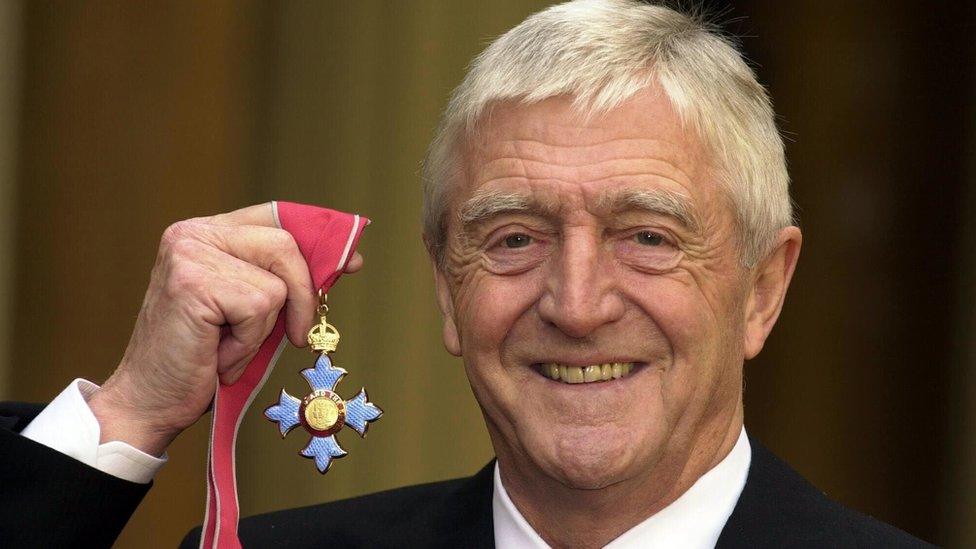
Sir Michael Parkinson was made a CBE in 2000 ahead of his knighthood in 2008
His son said that despite his father's anti-establishment stance, he accepted a knighthood from the Queen in 2008 for the sake of his parents as he knew they would be proud.
"And also, you've got to understand that this says a lad who was born in a pit village, went to a grammar school... worked for the local newspaper and all of a sudden, 67 years later, he's kneeling in front of the Queen, being knighted."
Tributes from around the world came in following Sir Michael's death from the likes of Sir Michael Caine and Sir David Attenborough.
But Mike Parkinson said that meant the family's grieving had almost gone on hold.
Becoming emotional, he said: "The difficulty with having a public figure as a father is that you feel you can't grieve until everyone else has.
"It's a silly thing to say, but that's the truth - you feel that everyone else must express what they feel about him because he meant so much to them.
"He meant so much to so many people but, actually, as a family, it's hard because your experience is overshadowed by noise and an outpouring that you feel almost that you have to step back from and allow that to happen, and allow that wave to subside.
"And then you, as a family, can remember him as a father, as a husband."
The full interview with Mike Parkinson can be heard on BBC Radio 4's Last Word with John Wilson and on BBC Sounds.

Sign up for our morning newsletter and get BBC News in your inbox.

- Published18 August 2023
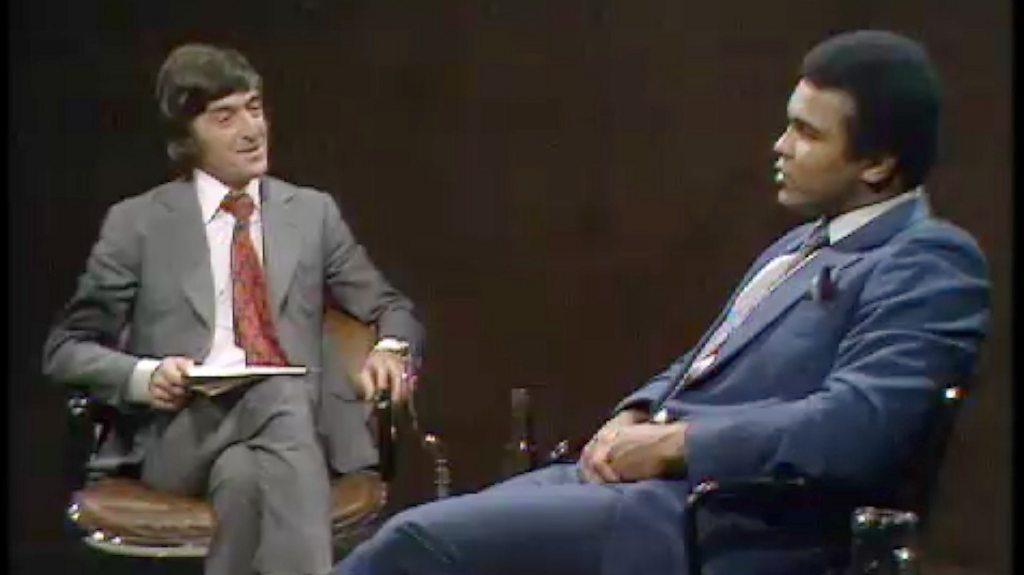
- Published17 August 2023
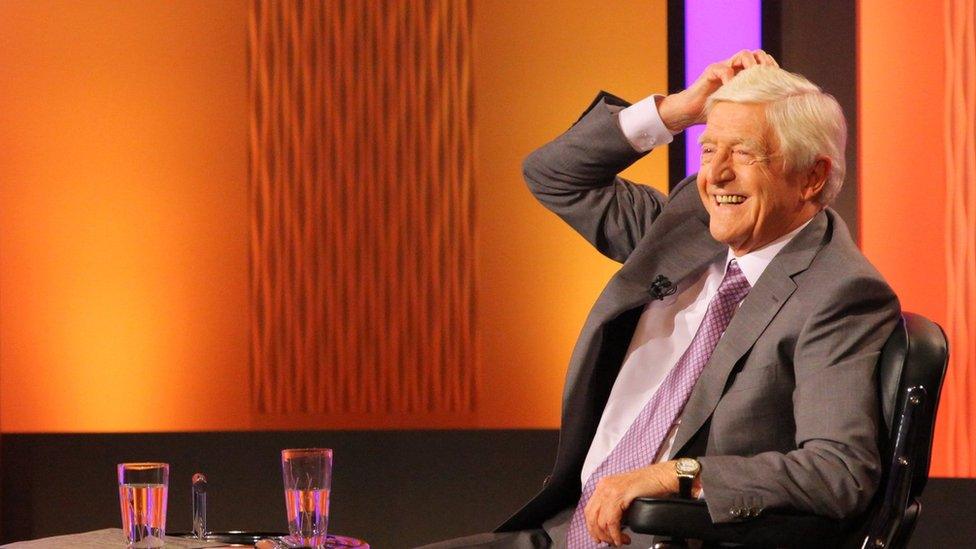
- Published17 August 2023
